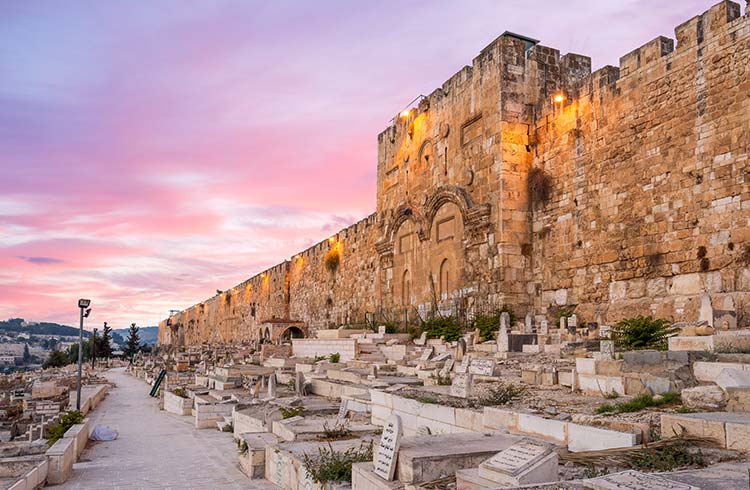Etiquette Tips for Travelers at Religious Sites in Israel
Israel has many religious sites important to Jewish, Christian and Muslim people. Find out how to visit these sacred sites respectfully and safely with these tips.
 Photo © Getty Images/joe daniel price
Photo © Getty Images/joe daniel price
The Jewish faith alone has more than 4,000 years of history in Israel. Christians believe Jesus Christ was born in Bethlehem just over 2,000 years ago. And, for 1,400 years, Muslims have held sites in Israel to be sacred.
Needless to say it is important when traveling in this region to be attentive to local customs as some are important religious traditions.
No preaching, please
The importation of religious materials for the purpose of preaching is not permitted in Israel. If you do carry any items considered to be religious material (such as a bible), these items might be confiscated.
Dress appropriately
If you choose to enter an ultra-Orthodox Jewish neighborhood, be aware that locals may be offended by anyone (particularly women) who dresses in an inappropriate manner. To avoid an etiquette faux-pas, wear loose fitting long-sleeved pants and a top that covers your shoulders and arms.
Sabbath and Ramadan
On Shabbat or Sabbath (from sunset on Friday to sunset on Saturday) Orthodox Jewish neighborhoods are blocked off, and you should not attempt to drive into them or visit them.
During the Muslim holy month of Ramadan, eating, drinking, and smoking between sunrise and sunset are forbidden for Muslims (though not for children under the age of eight).
As a courtesy, travelers might want to avoid drinking, eating, and smoking in public places in the Occupied Territories like the Gaza Strip and the West Bank during Ramadan.
Public alcohol consumption
Although alcohol will be available in some hotels and restaurants, drinking alcohol elsewhere may cause offense. Avoid drinking in public just in case.
Visitors to some synagogues, most churches, and all mosques should be aware that entry will normally not be permitted if your legs are exposed – so if you are wearing shorts or a short skirt (that goes for women and men) you wil not be allowed to enter. Keep your arms covered too.
Women may be denied entry or ordered to wear a robe before entering mosques or synagogues.
Just in case, carry a wrap with you to help cover up when required.
Mosques will also require you to take off your shoes before entry. Men should cover their heads in a synagogue.
Behavior etiquette in Israel
Public displays of affection are frowned on at religious sites in Israel.
Observe appropriate standards of behavior if you are visiting Orthodox Jewish neighborhoods. Acting conservatively is the best approach in these locations.
In the Gaza Strip and the West Bank, public displays of affection may also cause offense.
Simple and flexible travel insurance
You can buy at home or while traveling, and claim online from anywhere in the world. With 150+ adventure activities covered and 24/7 emergency assistance.
Get a quote
No Comments